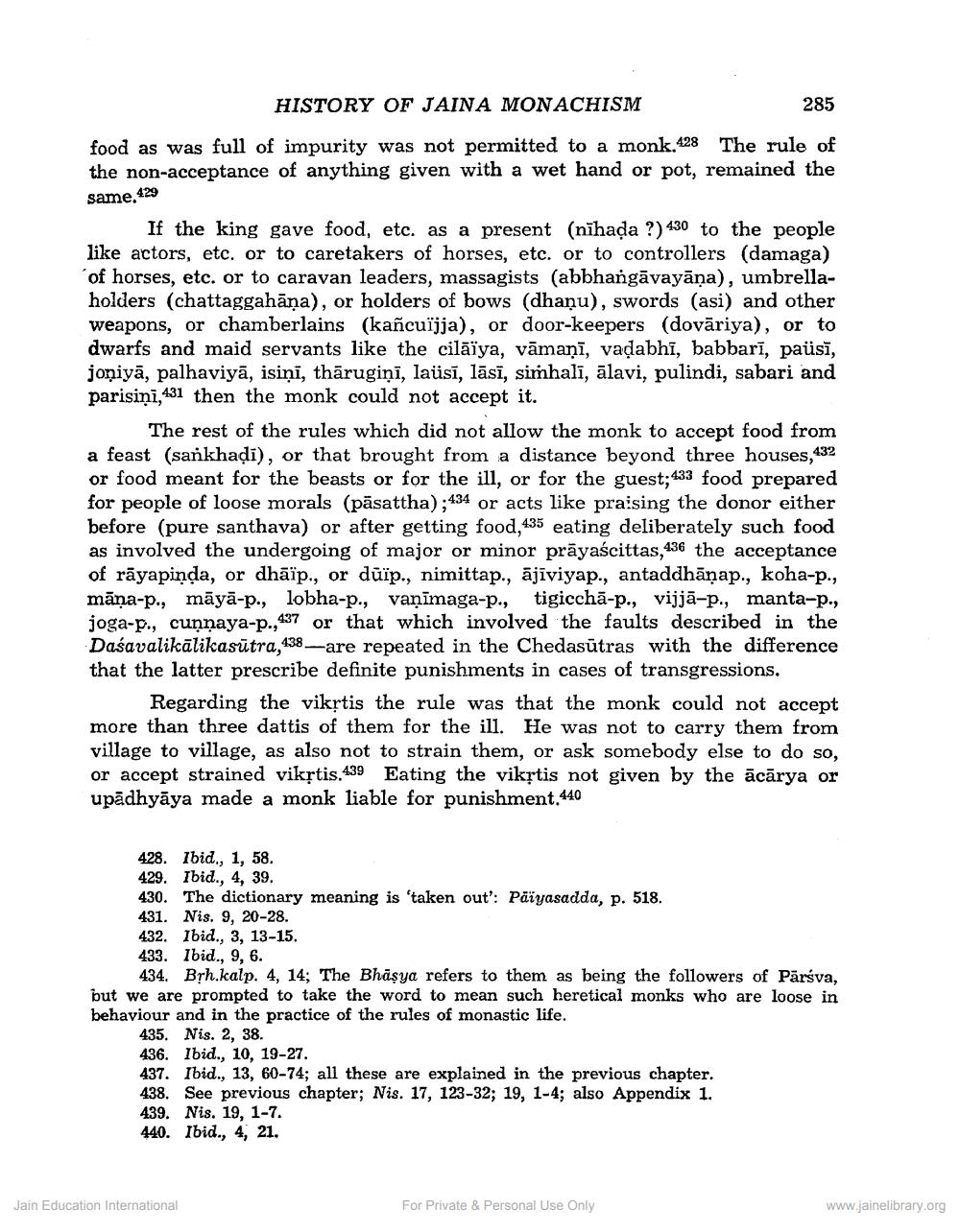________________
HISTORY OF JAINA MONACHISM
285 food as was full of impurity was not permitted to a monk.428 The rule of the non-acceptance of anything given with a wet hand or pot, remained the same.429
If the king gave food, etc. as a present (nīhada ?) 430 to the people like actors, etc. or to caretakers of horses, etc. or to controllers (damaga) of horses, etc. or to caravan leaders, massagists (abbhangāvayāņa), umbrellaholders (chattaggahāna), or holders of bows (dhaņu), swords (asi) and other weapons, or chamberlains (kañcuïjja), or door-keepers (dovāriya), or to dwarfs and maid servants like the cilāïya, vāmanī, vadabhī, babbarī, paüsī, joniyā, palhaviyā, isiņi, thārugiṇī, laüsī, lāsī, simhalī, ālavi, pulindi, sabari and parisiņi,431 then the monk could not accept it.
The rest of the rules which did not allow the monk to accept food from a feast (sankhadi), or that brought from a distance beyond three houses,432 or food meant for the beasts or for the ill, or for the guest;433 food prepared for people of loose morals (pāsattha);434 or acts like praising the donor either before (pure santhava) or after getting food, 435 eating deliberately such food as involved the undergoing of major or minor prāyaścittas, 436 the acceptance of rāyapinda, or dhāïp., or dūïp., nimittap., ājīviyap., antaddhānap., koha-p., māna-p., māyā-p., lobha-p., vanīmaga-p., tigicchā-p., vijjā-p., manta-p., joga-p., cunnaya-p.,437 or that which involved the faults described in the Daśavalikālikasūtra,438-are repeated in the Chedasūtras with the difference that the latter prescribe definite punishments in cases of transgressions.
Regarding the vikệtis the rule was that the monk could not accept more than three dattis of them for the ill. He was not to carry them from village to village, as also not to strain them, or ask somebody else to do so, or accept strained vikệtis.439 Eating the vikstis not given by the ācārya or upādhyāya made a monk liable for punishment.440
428. Ibid., 1, 58. 429. Ibid., 4, 39. 430. The dictionary meaning is 'taken out': Païyasadda, p. 518. 431. Nis. 9, 20-28. 432. Ibid., 3, 13-15. 433. Ibid., 9, 6.
434. Brh.kalp. 4, 14; The Bhasya refers to them as being the followers of Pārsva, but we are prompted to take the word to mean such heretical monks who are loose in behaviour and in the practice of the rules of monastic life.
435. Nis. 2, 38. 436. Ibid., 10, 19-27. 437. Ibid., 13, 60-74; all these are explained in the previous chapter. 438. See previous chapter; Nis. 17, 123-32; 19, 1-4; also Appendix 1. 439. Nis. 19, 1-7. 440. Ibid., 4, 21.
Jain Education International
For Private & Personal Use Only
www.jainelibrary.org




